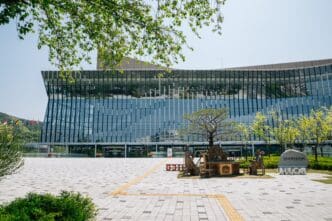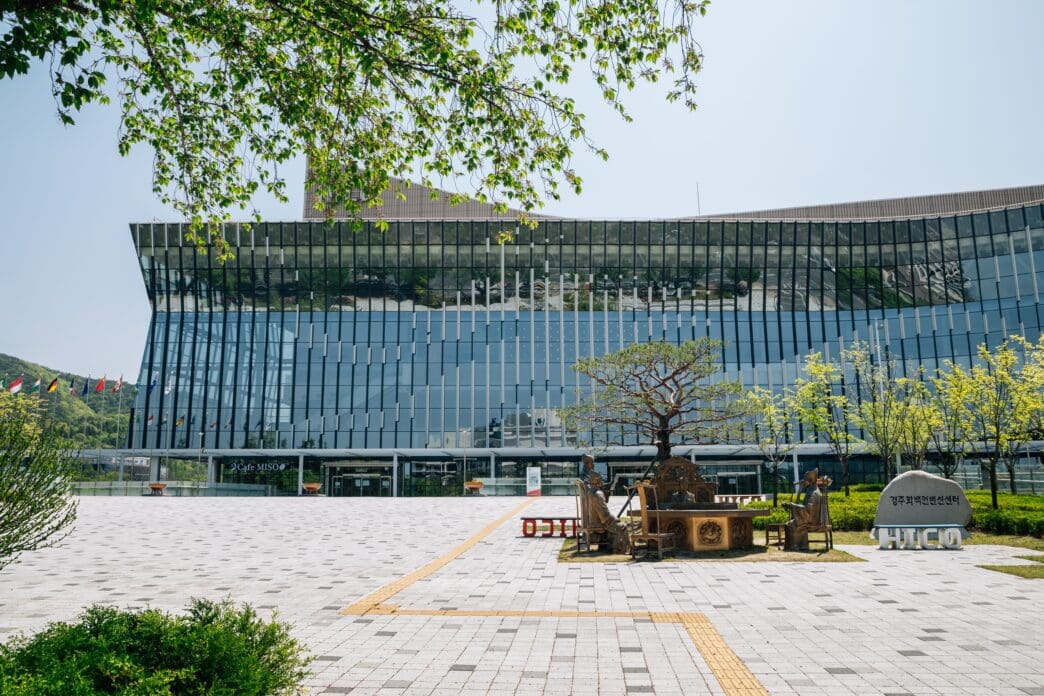Executive Summary
- South Korea is implementing a multi-faceted trade strategy focused on deepening cooperation with the United States, stabilizing supply chains with China, and expanding its network of trading partners to navigate global economic challenges.
- As host of the APEC summit, South Korea is engaged in a delicate diplomatic balancing act between its key security ally, the United States (under President Trump), and its largest trading partner, China, amidst ongoing trade tensions.
- Despite uncertainties in trade talks with the United States and global economic tensions, South Korea’s trade-reliant economy has demonstrated resilience and growth, driven by robust exports and active diversification efforts into emerging markets and the “Global South.”
The Story So Far
- South Korea’s multi-faceted trade strategy is a direct response to the significant pressure it faces as a smaller economy navigating the complex dynamics between its two largest trading partners and key security ally, the United States. This includes the Trump administration’s demands regarding trade imbalances and the broader repercussions of U.S.-China trade tensions, which necessitate South Korea’s delicate diplomatic balancing act to deepen U.S. cooperation, stabilize supply chains with China, and diversify its global trade network.
Why This Matters
- South Korea’s strategic efforts to deepen ties with the U.S. while stabilizing supply chains with China, amidst global trade tensions and an uncertain deal with the U.S., are critical for its economic stability and security. This complex diplomatic balancing act, combined with a robust diversification strategy to new markets and sectors, aims to bolster the nation’s resilience and ensure continued growth despite external pressures.
Who Thinks What?
- South Korea’s Minister for Trade Yeo Han-koo champions a multi-faceted trade strategy, aiming to deepen cooperation with the United States, stabilize supply chains with China, and diversify trading partners to ensure national interest and resilience.
- President Trump’s administration has exerted pressure on South Korea over trade imbalances, leading to demands for billions in investment and the imposition of heavy tariffs.
- China has responded to U.S.-China trade tensions with export controls and sanctions on some South Korean shipbuilders, while also advocating for multilateralism within regional forums.
South Korea is actively pursuing a multi-faceted trade strategy aimed at navigating complex global economic challenges, its top trade envoy stated as the nation hosts Asia-Pacific leaders for a major trade forum. This approach involves deepening cooperation with the United States, stabilizing supply chains with China, and expanding its network of trading partners. The country’s diplomatic balancing act is evident as it prepares to host both President Donald Trump and Chinese President Xi Jinping for the annual Asia-Pacific Economic Cooperation (APEC) summit.
Minister for Trade Yeo Han-koo indicated that the finalization of a trade deal between South Korea and the United States remains uncertain ahead of President Trump’s visit. However, Yeo emphasized to Reuters that achieving a mutually beneficial agreement that serves national interest is paramount, rather than the specific timing of its conclusion.
Diplomatic Balancing Act Amid Global Tensions
Seoul’s strategic position is highlighted by its role as host for President Lee Jae Myung, President Trump, and President Xi, alongside other Pacific Rim leaders, at the APEC summit. This gathering underscores South Korea’s delicate political and economic tightrope walk between its two largest trading partners and a key security ally.
The Trump administration has exerted pressure on South Korea over trade imbalances, leading Seoul to promise billions in investment to potentially avoid heavy tariffs. Baizhu Chen, an economics professor at the University of Southern California, noted that South Korea, as a smaller economy and close U.S. military ally, has limited leverage, suggesting it must seek the best possible outcome within given constraints.
Navigating U.S.-China Dynamics
South Korea has also contended with the repercussions of U.S.-China trade tensions, including China’s export controls and sanctions on some South Korean shipbuilders for cooperating with the United States. Minister Yeo acknowledged that these heightened tensions create uncertainty for global businesses, making dialogue and cooperation within multilateral frameworks like APEC all the more crucial and timely.
The APEC summit follows a recent Southeast Asia summit in Malaysia, where China advocated for multilateralism amidst the shadow of President Trump’s tariffs. These events underscore the regional efforts to manage the impact of major power rivalries.
Diversification and Economic Resilience
In its tariff negotiations, South Korea aims to strengthen cooperation with the U.S. across various sectors, including semiconductors, batteries, biotechnology, shipbuilding, and nuclear energy. Concurrently, with China, Seoul seeks multi-layered communication to maintain cooperation and stabilize supply chains.
Minister Yeo stressed the importance of diversifying trading partners to reduce reliance on any single country and to open new opportunities. This includes expanding networks with emerging economies across the “Global South” while maintaining stable and strategic relations with both the U.S. and China.
South Korea’s trade-reliant economy demonstrated resilience, growing at its strongest pace in a year and a half during the third quarter, with exports remaining robust despite stalled trade talks with Washington. Strong technology demand and growing car sales to Europe and emerging markets helped offset the impact of high U.S. tariffs on autos, while exports to Southeast Asia also provided a boost.
Further diversification efforts include a recently signed trade pact with Malaysia and upcoming negotiations with Thailand, focusing on digital transformation, supply chain resilience, and climate change. South Korea also plans to initiate trade agreement talks with South Asian countries such as Bangladesh and Pakistan.








